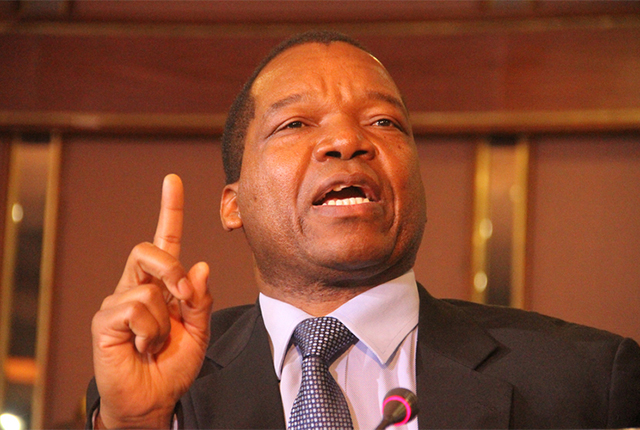Editorial Comment: Import payments discipline still required

The dramatic reduction last year in external payments from $7,18 billion to $5,12 billion is partly because of the far tighter rules banks have to follow before they make these payments, but partly reflects the backlog in necessary payments that have a reasonably high priority.
Zimbabwe cannot import more goods and services nor make other external payments unless that money has already been earned from exports or incoming payments. We have no option, but to keep a balance in outgoing and incoming payments. And Zimbabweans have to realise that although we almost all use the US dollar as a unit of account in our personal and business transactions inside Zimbabwe, these dollars cannot be moved out unless they can be matched by dollars coming into Zimbabwe.
The nostro accounts, that have been hitting headlines, are basically the foreign bank accounts maintained by our banks to receive incoming payments and to be used to make outgoing payments. And the banks cannot run an overdraft on these accounts.
And a wide swathe of industry has been struggling to replace stocks of imported raw materials and the like. They have the money in their Zimbabwean accounts to make the payments; they have the priority to jump the queue. But the banks simply do not have enough dollars in their nostro accounts to make the payments.
So the $70 million nostro stabilisation facility arranged by the Reserve Bank of Zimbabwe, that will be disbursed to banks at the end of the month, will make a significant dent in the backlog of external payments that is making life difficult for a wide range of businesses. But RBZ Governor Dr John Mangudya has made it clear that these extra funds can only be used to pay for productive imports and raw materials.
This must be enforced. The money is not for consumer goods or other non-essentials. It is designed to ensure that factories making goods for export, or making goods for the local market that need some imported content, remain open, that the workers can be paid and that our economy can at least grow.
This, and the Governor stressed this, is simply an interim measure. In a short while the harvest will be brought in and that should have a significant effect on our balance of payments, considering that most farmers are enjoying one of their best ever years. As tobacco starts moving out, as this year there will be cotton exports unlike last year when most of the crop withered and died, export earnings should start rising and start filling those nostro accounts as our customers pay up.
At the same time imports will start reducing. Having to buy more than half our basic food, and we are still having to do this until the maize crop has been harvested, dried and sold, will reduce pressure on those nostro accounts. Obviously ensuring no one starved was the number one priority. We will still need to import some food, most out our wheat and regrettably a large percentage of our oil seed because not enough is grown in Zimbabwe. No doubt, having fixed the maize crop as the top priority these will receive attention in the next cropping season.
Dr Mangudya was also worried about abuse, intended or otherwise, of the limited export earnings. He produced figures to show that a large sum of foreign banknotes must still be stuffed under mattresses, just in case, and the oddities of globalisation meant that some purely domestic transactions were being settled through nostro accounts, an unnecessary burden and most card users were probably unaware was happening.
Of course there were a growing number of people popping over a border to collect cash in foreign banknotes from an ATM, even with the tighter limits placed on foreign card cash transactions last year, and that was yet another unneeded leak of export earnings. What we have been seeing are strains building up. The RBZ efforts to prioritise external payments, and remove some of the leaks, is helping.
But even with the better harvests now confidently expected and the resulting higher exports and lower imports, it is obvious that Zimbabwe will not be ready for totally open markets. We will still need the discipline of the rules, although as we get better at exporting and better at making and buying stuff internally these can be relaxed.









Comments